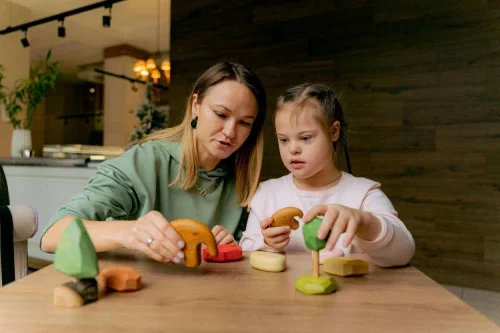The Power of Play: How Play Therapy Can Help Heal Children
Children often lack the vocabulary and abstract reasoning skills needed to express complex emotions verbally. Instead, they communicate through play, which is their natural language. Through imaginative storytelling, pretend games, art, and movement, children explore their feelings and make sense of their experiences. Play therapy leverages this inherent form of expression, allowing therapists to engage with children on their terms. By observing and participating in play, therapists gain insights into a child's world and emotional state, facilitating a deeper understanding of their inner thoughts.
Ideal Age for Play Therapy
While the core principles remain the same, the techniques used in play therapy can be adapted for a wider age range.
Ages 3–6: Natural Communicators Through Play
For children aged 3 to 6, play therapy serves as an invaluable tool, as play is their primary language. At this age, children might lack the verbal ability to express complex emotions or experiences, yet they naturally reveal their inner worlds through play. Through play therapy, young children can manage issues such as tantrums, attachment challenges, and early manifestations of anxiety or trauma. By engaging in guided play, these children gain a sense of security and understanding, helping them navigate their emotions more effectively.
Ages 7–12: A Safe Haven for Emotional Exploration
As children enter the 7 to 12 age range, they become more verbal, but many still find comfort in expressing themselves through play. School, peer interactions, and identity development are crucial at this stage, and play therapy offers a safe space for emotional exploration. Through creative and symbolic play, children can build resilience and coping skills, addressing issues like bullying or academic stress. This therapeutic approach allows them to articulate emotions that might be difficult to express verbally, fostering emotional growth and development.
Teens & Beyond: Adapting Play Therapy Techniques
While traditional talk therapy may become more prominent as verbal abilities mature, elements of play therapy remain beneficial for teenagers and adults. Techniques such as art, role play, and sand tray work can be adapted to meet the needs of older individuals. These methods encourage self-expression and insight, allowing for deeper exploration of personal challenges. By integrating play therapy techniques with verbal therapy, adolescents and adults can achieve a balanced and comprehensive therapeutic experience.
What Exactly Does Play Therapy Do for Children
At its core, play therapy offers children a sanctuary where they can express their emotions freely, without the constraints of verbal language. Imagine a six-year-old trying to articulate feelings of anger or sadness, complex emotions made more daunting when words fail them. Here, toys and creative activities take on the role of words, allowing emotions like fear or frustration to surface naturally. Through this, children can communicate what they struggle to say aloud, offering therapists a window into their internal world.
Processing Trauma Through Play
Children often reenact past experiences or traumas within the therapeutic play space, transforming formidable memories into manageable narratives. When a child revisits a troubling experience through play, they can gradually process it in an environment that feels secure and supportive. This reenactment allows the child to gain a sense of control and understanding over their experiences, fostering emotional healing.
Building Confidence and Skills
Play therapy is more than emotional expression; it is a powerful tool for building self-esteem and social skills. Through successful interactions in play, children begin to see themselves as capable and competent, boosting their confidence. Furthermore, engaging in cooperative play scenarios enhances problem-solving and social interaction skills. Therapists observe these interactions, gently steering the child toward healthier strategies and solutions, reinforcing their growth and development.
Emotional Healing and Creativity
Through play, children can alleviate anxiety, experiencing emotional healing and growth. This supportive environment stimulates imagination and creativity, essential for developing adaptive skills and self-efficacy. Such skills empower children to manage personal challenges, enhancing their resilience independently.
Play therapy is a transformative process that speaks the language of children, providing them with the tools to express, heal, and thrive. Looking to learn more? Book our child therapy today.

